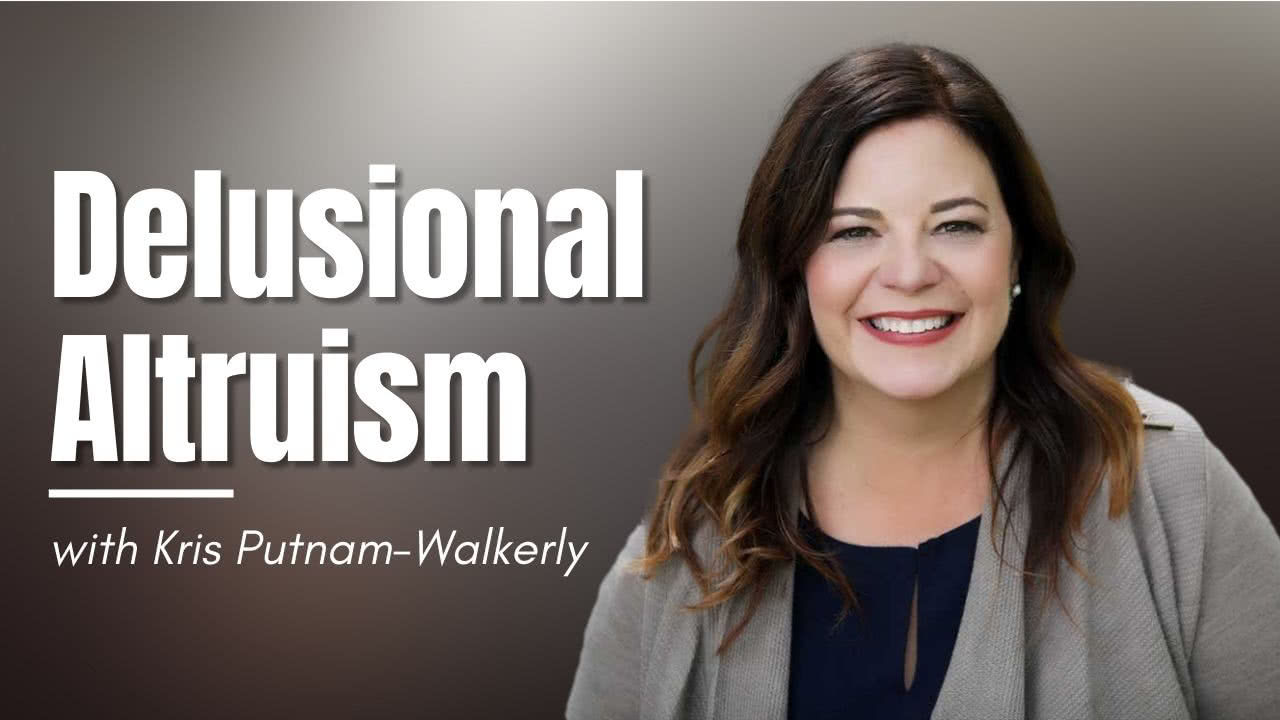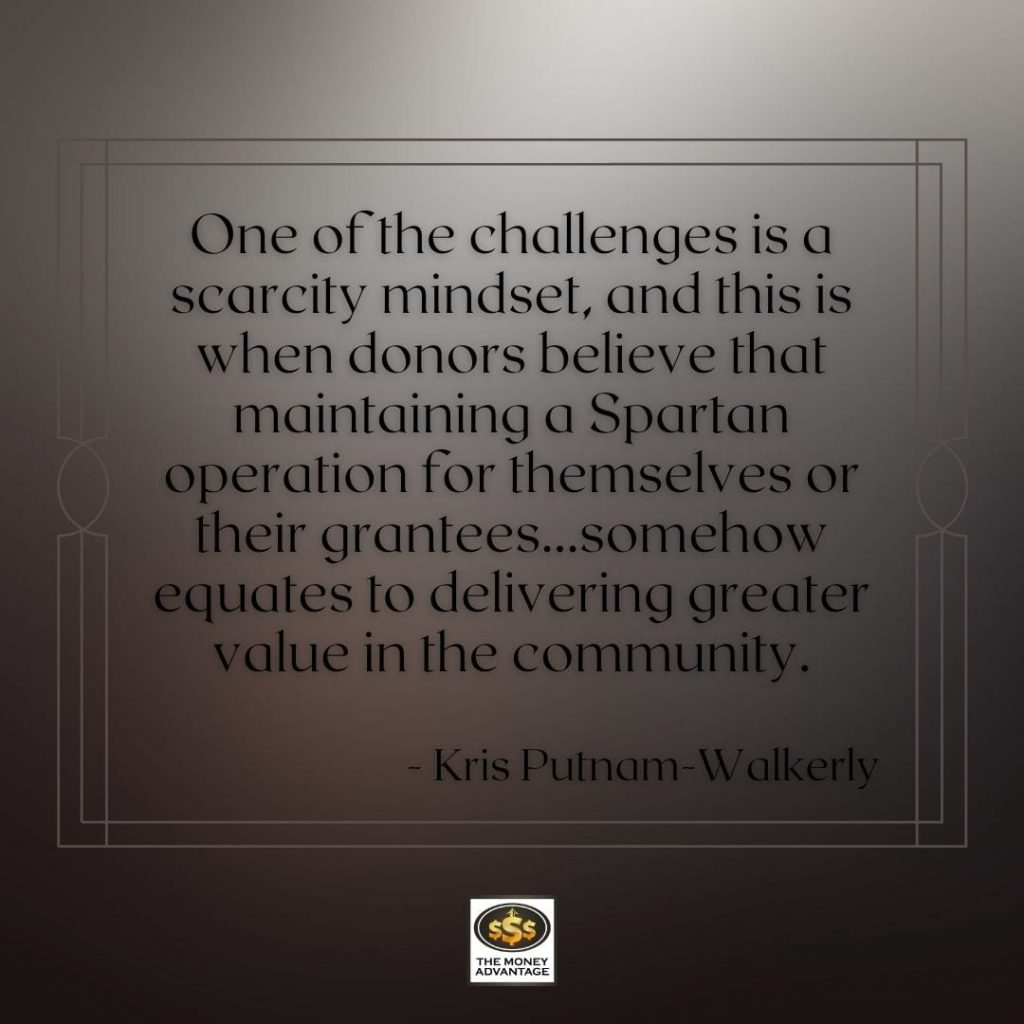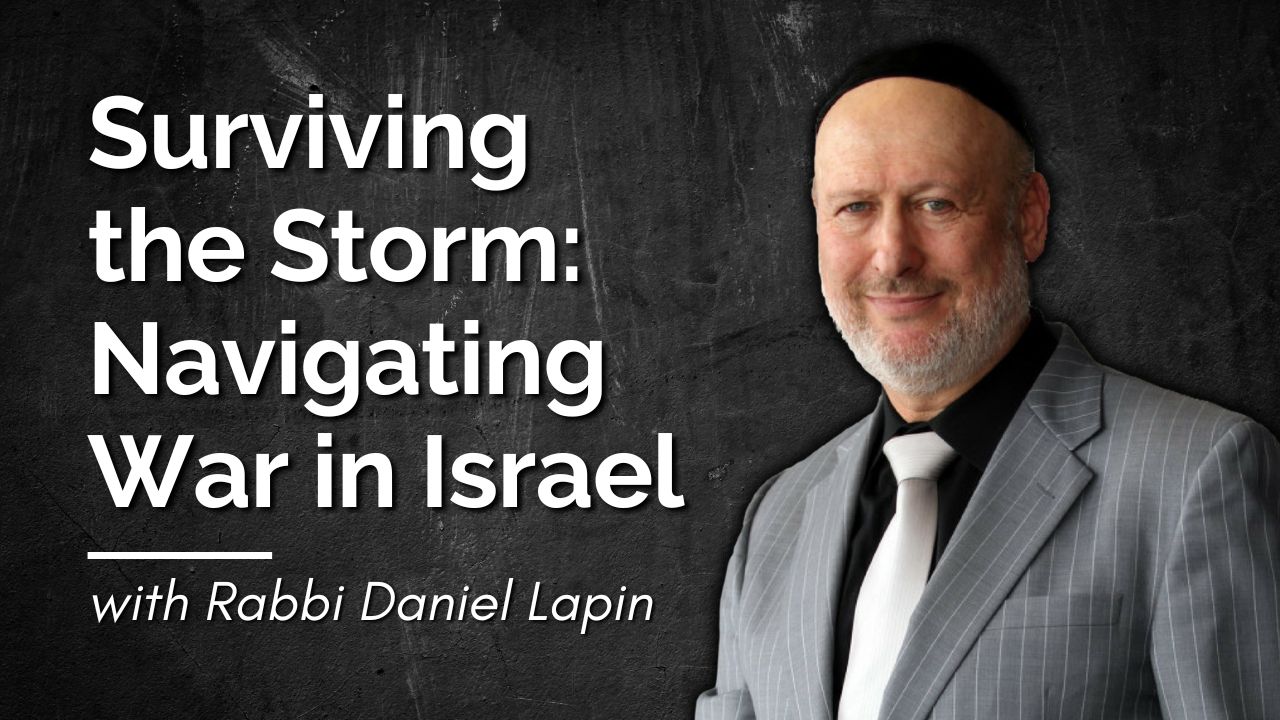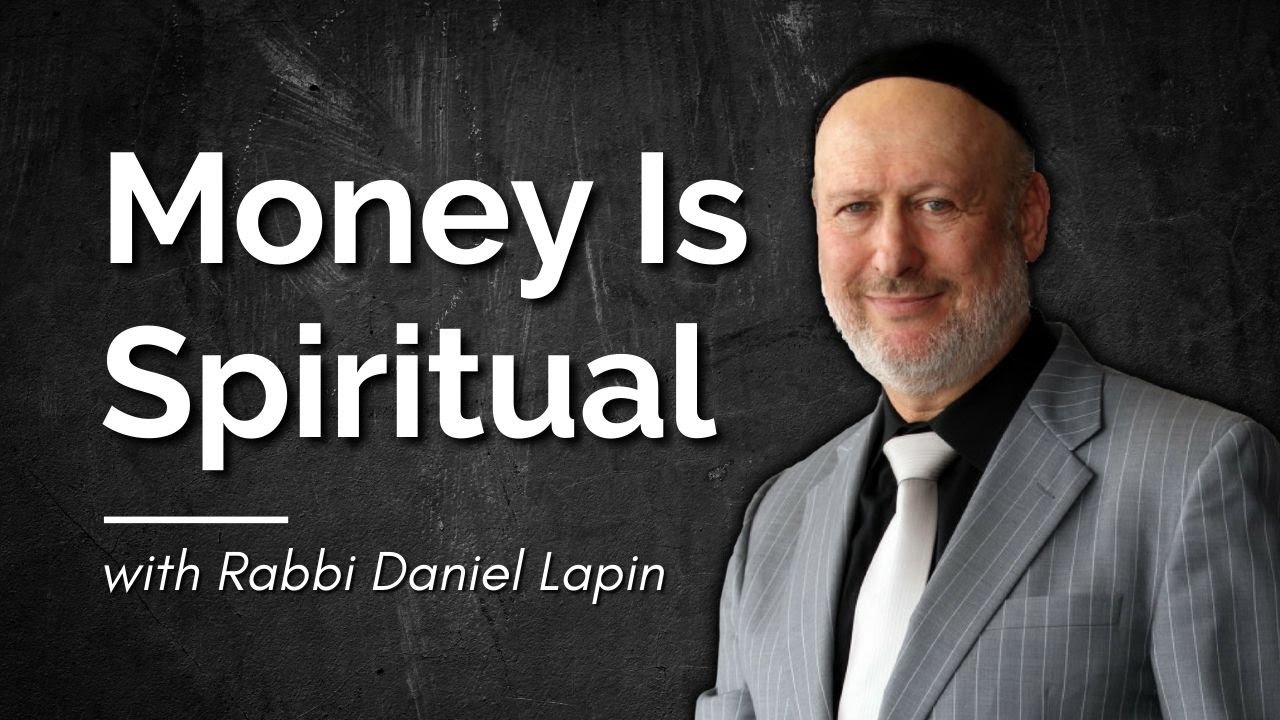
Delusional Altruism, with Kris Putnam-Walkerly
Want your charitable giving to make the greatest difference in the world? Today, we’re talking with Kris Putnam-Walkerly, author of Delusional Altruism, who advises philanthropists who want to achieve greater clarity, impact, and joy with their giving.
We’ll discuss why how you give matters, the 7 delusions of altruism, and how to create lasting change.
If you’re a philanthropist, donor, or an everyday person who donates time, money, and experience to help create a better world… tune in now!
Podcast: Play in new window | Download (Duration: 49:47 — 57.0MB)
Subscribe: Apple Podcasts | Spotify | Android | Pandora | RSS | More
Table of contents
Philanthropy Coaching
[7:08] “I also provide a lot of coaching and advising. So most of my clients now retain me as a private coach to help them navigate their philanthropic journey and help them get clarity on what they’re trying to accomplish. And help hold them accountable to accomplishing it. And really being a sounding board to them, because it can be a very lonely place to be. Either you’re the executive director, perhaps, of a foundation…but also for, perhaps, an ultra-high-net-worth donor…it can feel lonely because you can feel a lot of guilt with having all that wealth.”
The reason it’s lonely, as Kris mentions, is that there aren’t many people you can have a conversation with about your finances. Either people are asking for that money, or they don’t validate your struggles because you have money.
Delusional Altruism: What Makes Philanthropy Effective or Not?
[9:35] “Delusional Altruism is really about how donors of all sizes and types are generally genuine in their altruism. They really want to make a difference, change the world, want to help others; but are getting in their own way and are preventing themselves from having the impact that they seek….So part of the challenge with effectiveness is, it’s hard to be effective when you’re getting in your own way.”
[10:05] “One of the challenges is a scarcity mindset, and this is when donors believe that maintaining a spartan operation for themselves or their grantees…somehow equates to delivering greater value in the community.”

[11:00] “If you want a non-profit to be successful, just like a business, it requires investment in your growth and in your success.”
[11:55] “I think a lot of people of wealth feel guilty. They feel guilty because maybe they inherited the wealth and didn’t earn it, and therefore don’t deserve it. Or maybe they made more money than they ever thought they’d make in their lifetime, sold a business, and suddenly have wealth… But the problem with that is it really holds funders back, from a mindset perspective. It often causes people to shrink, to kind of mask their talent and mask their ability to make a difference in the lives of others.”
[13:04] Rachel: “The business in the first place is service to mankind and to the world. And you are not taking money from society; you are giving something that’s more valuable, and the exchange of that is that you are profitable.”
Invest Like It’s Your Business
[18:50] Kris: “Is that how you invest in your business? Do you only allow one cent of every dollar to go to pay your staff salaries? [Or] to go to pay for your own business development? So why are we asking a non-profit, who’s trying to save people’s lives, why are you asking them to do [that]?”
How Do Philanthropists Get in Their Own Way?
[20:20] “I think fear really is the primary cause of the scarcity mindset. And there are lots of different ways funders feel fearful; which might surprise you because you assume that the donor is wealthy, and with wealth should come confidence.”
[25:30] “Sometimes we…sort of stumble through our giving based on what’s presented to us—the appeals that arrive at our doorstep. But often people haven’t had a chance to really reflect and think as an individual or as a couple or as a family or a business, [about what the] issues are that [they] really care about.”
[27:58] Rachel: “At the root of doing the most good, we have to first understand what do we truly value. And I love that you’re saying that that’s really important.”
How to Ask the Right Questions
[31:15] Kris: “Questions are really powerful, and I think if you ask the right questions, they send you down the right path. And if you ask the wrong questions, they send you down the wrong path. And one of the questions that I think people ask—and it’s really about ordering them—is they ask how to do something before they ask themselves what it is they’re trying to accomplish. Really what that means is they’re focused on the tactics of doing something before they’re thinking through the strategy… You can’t possibly know how you want to go about doing something unless you have clarity on your objective.”
How Can You Be Transformational in Your Giving?
[37:40] “I’ll share two things if I can. The first, very briefly, is just recognizing that as a donor you have more to give than money…It’s not just wealth, you also have your expertise, you have your volunteer time. You also have your ties and your communicate, your contacts.”
[38:52] “So I think just thinking about bringing your whole self is part of being transformational. The second thing I’ll say is, and this gets back to strategy…it’s really having a shift in mindset around strategy and planning. And the mindset shift is instead of letting that unknown future paralyze you, to really let it free you.”
Links Mentioned:
About Kris Putnam-Walkerly
Kris Putnam-Walkerly is a trusted advisor to the world’s leading philanthropists. For over 20 years, ultra-high net worth donors, foundations, Fortune 500 companies, celebrity activists, and wealth advisors have sought her advice to transform their giving and catapult their impact. As a philanthropy advisor, speaker, and award-winning author, she’s helped hundreds of philanthropists strategically allocate over half a billion dollars in grants and gifts. Kris’s clients include the Robert Wood Johnson Foundation, J.M. Smucker Company, Charles and Helen Schwab Foundation, Heising-Simons Foundation, Annie E. Casey Foundation, David and Lucile Packard Foundation, Walton Family Foundations, Fujitsu, Blue Shield of California, and Avery Dennison Foundation, among many others.
A thought leader in transformational giving®, Kris has been named one of America’s Top 20 Philanthropy Speakers for the past three years. She is the author of Delusional Altruism: Why Philanthropists Fail To Achieve Change and What They Can Do To Transform Giving (Wiley, 2020) and Confident Giving: Sage Advice for Funders; a Forbes.com contributor on philanthropy; a global philanthropy content partner to Alliance Magazine; and the US philanthropy expert to the leading Dutch philanthropy media outlet De Dikke Blauwe.
Prior to forming Putnam Consulting Group, Inc., Kris was a grantmaker at the David and Lucile Packard Foundation and an evaluator at Stanford University School of Medicine. She holds a master’s degree in social work from San Francisco State University and a bachelor’s degree from Indiana University. She and her husband have five children and reside near Cleveland, Ohio. Learn more at putnam-consulting.com.
Book A Strategy Call
Do you want to coordinate your finances so that everything works together to improve your life today, accelerate time and money freedom, and leave the greatest legacy? We can help! Book an Introductory Call with our team today https://themoneyadvantage.com/calendar/, and find out how Privatized Banking, alternative investments, or cash flow strategies can help you accomplish your goals better and faster. That being said, if you want to find out more about how Privatized Banking gives you the most safety, liquidity, and growth… plus boosts your investment returns, and guarantees a legacy, go to https://privatizedbankingsecrets.com/freeguide to learn more.
Surviving the Storm: Navigating War in Israel with Rabbi Lapin
When war across the world could mean war close to home or a whole world war … when conflicts thousands of years old can’t be solved overnight … when truth seems defined by who’s in power … when totalitarianism seems stronger than freedom and free markets … when open borders looked like compassion but instead…
Read MoreMoney is Spiritual, with Rabbi Daniel Lapin
Money is often confused, misunderstood, and classified as part of our basic, natural, carnal human nature. But money is spiritual. Understanding, earning, using, managing, and growing money is a part of our lives that is deeply spiritual. Rabbi Lapin knows this, and shares his wisdom about money far and wide. Today, Rabbi Daniel Lapin explains why,…
Read More


